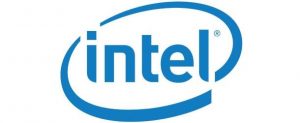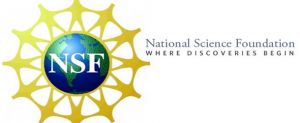
Quantum News Briefs September 21:
Intel developing sequel to Tunnel Falls quantum processor
 Intel is developing a sequel to its Tunnel Falls quantum processor. Quantum News Briefs summarizes September 21 article by Stephen Shankland in CNET.
Intel is developing a sequel to its Tunnel Falls quantum processor. Quantum News Briefs summarizes September 21 article by Stephen Shankland in CNET.
Intel believes its strategy — staying as close to conventional computers as possible — will pay off in the long run by enabling large qubit counts.
By some measures, Intel lags rivals in developing quantum computers. It hopes to leapfrog them with quantum computer processors that eventually will have enough capacity to fulfill the promise of quantum computers.
“You’ve got to scale to millions of qubits, and you’ve got to scale to millions of error-correcting qubits to get to effective computing workloads,” Intel Chief Technology Officer Greg Lavender said in a speech at Intel’s Innovation conference Wednesday.
It’s too early to declare victory, but CCS Insight analyst James Sanders believes Intel’s approach at least shows promise. “The idea of Intel trying to leverage decades of experience in manufacturing to build a qubit around silicon will inevitably work. I don’t know if it’s going to be a market leader,” he said.
Intel rivals have machines with dozens of qubits, well over the 12 housed in Intel’s Tunnel Falls quantum processor that Intel Labs Director Rich Uhlig showed off at Innovation. A sequel is in the works.
Intel is also working on better technology to control the qubits using its Horse Ridge processor. It’s complicated, since the quantum processors must run at such cold temperatures and processors throw off waste heat.
Intel is also working on better technology to control the qubits using its Horse Ridge processor. It’s complicated, since the quantum processors must run at such cold temperatures and processors throw off waste heat.
Testing products is tough too, since it takes hours to cool hardware enough for quantum computing to work. For that reason, Intel made a device that can test thousands of processors at a time at cold temperatures to speed hardware development. Click here to read the September 21 CNET in-entirety.
Quantum Computing Inc. selects Tempe, AZ as Site for its Quantum Photonic Chip Foundry
 Quantum Computing Inc., an innovative, quantum optics and nanophotonics technology company, announces that it has chosen ASU Research Park in Tempe, Arizona, as the location for its new quantum photonic chips manufacturing facility, where it will produce its Thin Film Lithium Niobate (TFLN) chips. Quantum News Briefs summarizes the announcement.
Quantum Computing Inc., an innovative, quantum optics and nanophotonics technology company, announces that it has chosen ASU Research Park in Tempe, Arizona, as the location for its new quantum photonic chips manufacturing facility, where it will produce its Thin Film Lithium Niobate (TFLN) chips. Quantum News Briefs summarizes the announcement.
Known for its photonic-based quantum solutions, QCi is expanding production with this new facility to accelerate its advanced technology development in nanophotonics and optical chip manufacturing for use in its high-performance computing, machine learning, cyber security, sensing, and imaging products. A characteristic feature of these chips is heightened scalability and performance advantages such as speed, accuracy and ultra low electric power consumption. Lithium niobate nanophotonic circuits (quantum chips) will be used in QCi’s products and for general sale in the market as well.
The State of Arizona is one of the nation’s leading semiconductor ecosystems, comprised of more than 100 leading tech companies, built upon a long history of advancing the chip industry dating back to the first Motorola lab in the late 1940s. Importantly, Arizona is a driving force in the field of optics as its government leaders were early in the championing of advanced photonic research by supporting strong research universities interested in exploring mission-ready quantum computing and related technologies.
The location QCi chose for its new facility is on five acres within the extensive 320-acre research park hosted by ASU, a global leader in academic microelectronics research and #1 in Innovation according to U.S. News & World Report.
To date, QCi has placed deposits for the procurement of critical long-lead equipment and paid other expenses associated with the new chip fabrication facility of approximately $2 million. The Company plans to begin the buildout of the facility during fourth quarter 2023. Click here to read complete September 21 announcement.
Signal is adding quantum-level encryption to help keep customers safe
 Secure messaging platform Signal has announced commitments to keep users safe against quantum-level attacks, beginning with an upgrade to its protocol to protect its end-to-end encryption further. Quantum News Briefs summarizes in September 21 TechRadar article.
Secure messaging platform Signal has announced commitments to keep users safe against quantum-level attacks, beginning with an upgrade to its protocol to protect its end-to-end encryption further. Quantum News Briefs summarizes in September 21 TechRadar article.
In an update, Signal CTO Ehren Kret said the “layer of protection” would protect “against the threat of a quantum computer being built in the future that is powerful enough to break current encryption standards.”
While quantum computing is far from a global reality, it does pose the very real threat of solving problems much more quickly than classical computing, meaning it could crack encryption keys in a comparably short space of time.
Kret added: “Although quantum computers already exist, the systems known to exist today do not yet have enough qubits to pose a threat to the public-key cryptography that Signal currently uses.”
It’s unclear how far away powerful quantum computers could be, but Signal does at least see them as a “real and growing risk,” hence the early preparation.
Post-quantum cryptography continues to be an area that requires huge amounts of work, but Signal has certainly earned itself even more trust among fans as concerns about digital privacy continue. Click here to read TechRadar article in-entirety.
NOTE: Quantum News Briefs received this related statement about the Signal announcement:
Denis Mandich, a former U.S. intelligence official and the CTO and co-founder of Qrypt, as well as a physicist and the founding member of Quantum Economic Development Consortium (QED-C) and the Mid-Atlantic Quantum Alliance (MQA), commented about the significance of this news as well as the additional steps that are needed by all communications and workplace platforms to be truly quantum-secure. “Signal’s upgrade to quantum-safe encryption elevates them far above all secure messaging apps. However, it’s not enough to ensure durable privacy in the quantum era because it does not solve the “harvest now, decrypt later” (HNDL) problem. That requires a transition to a new cryptographic architecture eliminating the legacy of encryption key exchange entirely.” – Denis Mandich, CTO and Co-Founder, Qrypt
NSF Funds Physics Frontiers Centers $76 M for quantum focus to propel next-gen innovations
 Four research centers are to be backed by $76 million in funding from the U.S. National Science Foundation through its Physics Frontiers Centers program. The centers will tackle some of the most challenging and potentially rewarding areas of physics research. Quantum News Briefs summarizes.
Four research centers are to be backed by $76 million in funding from the U.S. National Science Foundation through its Physics Frontiers Centers program. The centers will tackle some of the most challenging and potentially rewarding areas of physics research. Quantum News Briefs summarizes.
Researchers at the newly funded centers will probe diverse and difficult topics such as how the exotic quantum-scale properties of atoms and molecules can be scaled up for new purposes and how matter evolved the ability to store and process information, thus leading to living things with memories.
The centers will provide substantial training and mentorship opportunities to undergraduate and graduate students and postdoctoral researchers to help build the U.S. scientific workforce and prepare the next generation of leaders in physics. The centers also aim to inspire middle and high school students to pursue careers in science, engaging them through educational games and videos, workshops, summer schools and educational outreach with local schools and teachers.
The 2023 NSF Physics Frontiers Centers:
NSF Physics Frontiers Center for Living Systems:
Located at the University of Chicago, this center is funded for the first time and aims to advance a new field of science focused on understanding how matter is able to store and retrieve information, as living things do with memories.
NSF Physics Frontiers Center: Institute for Quantum Information and Matter:
Located at the California Institute of Technology, the center seeks to combine and advance multiple fields of physics involving atoms and molecules with new developments from quantum information theory.
NSF Physics Frontiers Center: Institute for Quantum Information and Matter
Located at the California Institute of Technology, the center seeks to combine and advance multiple fields of physics involving atoms and molecules with new developments from quantum information theory.
NSF Physics Frontiers Center: Comprehension and Control of Emerging Complexity at the Quantum Frontier
Located at the University of Colorado Boulder, the center will advance control over light-matter interactions to explore quantum systems of increasing size and complexity.
Located at the Massachusetts Institute of Technology, the center’s goal is to enable greater control and programmability of quantum-entangled systems of low-temperature atoms and molecules. Click here to read detailed announcement.
Sandra K. Helsel, Ph.D. has been researching and reporting on frontier technologies since 1990. She has her Ph.D. from the University of Arizona.
- SEO Powered Content & PR Distribution. Get Amplified Today.
- PlatoData.Network Vertical Generative Ai. Empower Yourself. Access Here.
- PlatoAiStream. Web3 Intelligence. Knowledge Amplified. Access Here.
- PlatoESG. Carbon, CleanTech, Energy, Environment, Solar, Waste Management. Access Here.
- PlatoHealth. Biotech and Clinical Trials Intelligence. Access Here.
- Source: https://www.insidequantumtechnology.com/news-archive/quantum-news-briefs-september-22-intel-developing-sequel-to-tunnel-falls-quantum-processor-quantum-computing-inc-selects-tempe-az-as-site-for-its-quantum-photonic-chip-foundry-signal-is-adding-qu/
- :has
- :is
- :not
- :where
- $UP
- 1
- 100
- 12
- 2023
- 22
- 31
- 7
- 8
- a
- ability
- Able
- About
- above
- academic
- accelerate
- According
- accuracy
- acres
- added
- adding
- Additional
- advance
- advanced
- Advanced Technology
- advancing
- advantages
- against
- aim
- aims
- All
- Alliance
- already
- also
- among
- amounts
- an
- analyst
- and
- announced
- Announcement
- Announces
- approach
- approximately
- apps
- architecture
- ARE
- AREA
- areas
- arizona
- around
- article
- AS
- associated
- At
- Attacks
- away
- back
- backed
- BE
- because
- been
- begin
- Beginning
- being
- believes
- Better
- Break
- build
- built
- but
- by
- california
- CAN
- Capacity
- careers
- Center
- Centers
- certainly
- challenging
- championing
- characteristic
- chicago
- chief
- chief technology officer
- chip
- Chips
- chose
- chosen
- Close
- CNET
- Co-founder
- cold
- Colorado
- combine
- commented
- commitments
- Communications
- Companies
- company
- complete
- complexity
- complicated
- Comprised
- computer
- computers
- computing
- Concerns
- consortium
- consumption
- continue
- continues
- control
- conventional
- Cool
- could
- crack
- critical
- cryptographic
- cryptography
- CTO
- Current
- Currently
- Customers
- cyber
- cyber security
- Date
- Dating
- decades
- Decrypt
- deposits
- detailed
- developing
- Development
- developments
- device
- difficult
- digital
- Director
- diverse
- do
- does
- Dont
- dozens
- driving
- during
- Early
- earned
- Economic
- Economic Development
- Ecosystems
- educational
- educational games
- Effective
- Electric
- eliminating
- emerging
- enable
- enabling
- encryption
- end-to-end
- engaging
- enough
- ensure
- entirely
- equipment
- Era
- Even
- eventually
- evolved
- exchange
- exist
- Exotic
- expanding
- expenses
- experience
- explore
- Exploring
- extensive
- Facility
- Falls
- fans
- far
- Feature
- field
- Fields
- Film
- First
- first time
- five
- Focus
- focused
- follow
- For
- Force
- Former
- founding
- Foundry
- Fourth
- from
- Frontier
- Frontiers
- Fulfill
- funded
- funding
- funds
- further
- future
- Games
- General
- generation
- get
- Global
- goal
- going
- got
- Government
- Government Leaders
- graduate
- greater
- Growing
- Hardware
- Have
- he
- heightened
- help
- hence
- her
- here
- High
- high-performance
- history
- hopes
- Horse
- horse ridge processor
- hosted
- HOURS
- How
- However
- HTTPS
- huge
- i
- idea
- if
- image
- Imaging
- in
- Inc.
- increasing
- industry
- inevitably
- information
- Innovation
- innovative
- inside
- Inside Quantum Technology
- insight
- inspire
- Institute
- Intel
- Intelligence
- interactions
- interested
- involving
- IT
- ITS
- itself
- james
- jpg
- Keep
- Key
- keys
- Know
- known
- lab
- Labs
- large
- Late
- leader
- leaders
- leading
- learning
- least
- Legacy
- Leverage
- LG
- living
- local
- location
- Long
- Low
- machine
- machine learning
- Machines
- made
- manufacturing
- Market
- Market Leader
- massachusetts
- Massachusetts Institute of technology
- Matter
- max-width
- meaning
- measures
- member
- Memories
- Mentorship
- messaging
- Middle
- million
- millions
- more
- most
- Motorola
- much
- multiple
- must
- Nanophotonics
- National
- National Science
- Nations
- needed
- New
- new chip
- newly
- news
- next
- now
- NSF
- of
- off
- Officer
- official
- on
- ONE
- opportunities
- optics
- Other
- outreach
- over
- paid
- Park
- Pay
- performance
- Physics
- plans
- platform
- Platforms
- plato
- Plato Data Intelligence
- PlatoData
- pose
- possible
- posted
- potentially
- power
- powerful
- preparation
- Prepare
- privacy
- probe
- Problem
- problems
- process
- Processor
- processors
- procurement
- produce
- Production
- Products
- Program
- promise
- Propel
- properties
- protect
- protocol
- provide
- purposes
- pursue
- QCI
- Quantum
- Quantum Computer
- quantum computers
- quantum computing
- quantum computing inc
- quantum information
- Quantum optics
- quantum systems
- quantum technology
- Quarter
- Qubit
- qubits
- quickly
- Read
- real
- Reality
- reason
- received
- related
- Reporting
- requires
- research
- researchers
- rewarding
- Rich
- Risk
- rivals
- Run
- s
- safe
- Said
- sale
- sanders
- Scalability
- Scale
- School
- Schools
- Science
- scientific
- secure
- security
- see
- Seeks
- semiconductor
- September
- she
- Short
- showed
- Shows
- Signal
- significance
- Silicon
- since
- site
- Size
- Solutions
- SOLVE
- Solving
- some
- Space
- speech
- speed
- standards
- Statement
- staying
- Steps
- store
- Strategy
- strong
- Students
- substantial
- such
- summer
- Supporting
- SVG
- Systems
- tackle
- takes
- teachers
- tech
- tech companies
- Technologies
- Technology
- Technology Development
- test
- than
- that
- The
- The Future
- Them
- theory
- These
- things
- this
- thousands
- threat
- Through
- Thus
- time
- to
- today
- too
- Topics
- tough
- Training
- transition
- true
- truly
- Trust
- trying
- tunnel
- u.s.
- Ultra
- understanding
- Universities
- university
- University of Chicago
- upgrade
- upon
- use
- used
- users
- uses
- using
- very
- victory
- Videos
- Waste
- Wednesday
- WELL
- were
- will
- with
- within
- Work
- Workforce
- working
- Workplace
- works
- Workshops
- world
- would
- yet
- zephyrnet













